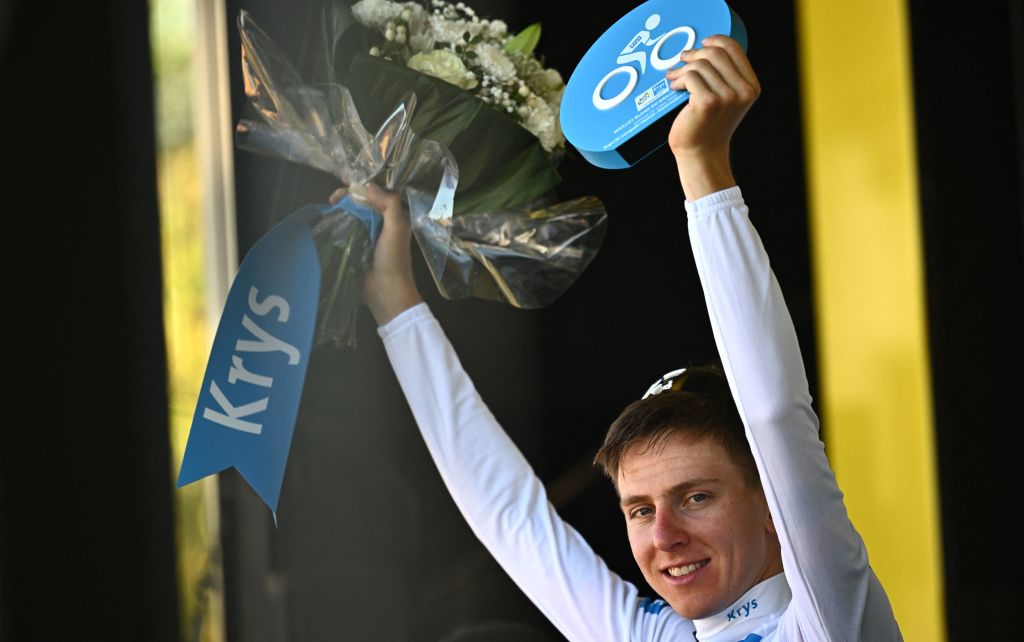When Tadej Pogačar cracked on the Col du Granon on stage 11 of this Tour de France, it was tempting to draw comparisons with fin du régime moments like Eddy Merckx at Pra-Loup in 1975 or Miguel Indurain at Les Arcs in 1996. For Merckx and Indurain, both chasing record sixth Tour victories, those defeats signalled the beginning of the end. Pogačar, by contrast, is still only 23 years of age and clearly not going anywhere.
This Tour surely marks a bump in the road rather than the beginning of a premature decline. In that regard, Pogačar’s abdication to Jonas Vingegaard (Jumbo-Visma) on the Granon perhaps bore firmer echoes of Merckx’s defeat at Luis Ocaña’s hands at Orcières-Merlette in 1971. Pogačar, like Merckx, responded by attacking the new maillot jaune at every opportunity.
Merckx had providence on his side, as Ocaña crashed out on the descent of the Col de Menté. Pogačar, by contrast, had no luck at all, and he was faced with an implacable foe in Vingegaard, and his sequence of Tour success was interrupted. “I think Tadej is still Tadej, he’s still the strongest rider in the world,” manager Mauro Gianetti told Cyclingnews.
“Vingegaard is clearly strong, he’s raced very well, and he’s had top-level team around him, with an extraordinary Van Aert in particular. Read morePogacar: Vingegaard gives me motivation to be better Wout van Aert, Vingegaard go one-two in stage 20 time trial of Tour de France Pogacar, UAE team promise to fight back after shock Tour de France defeat “Tadej, through his character and his young age, made a mistake on the Granon stage, and then a series of obligations arose from that. He had to change his way of racing and take some risks, and that made it more difficult.
But ultimately, you have to pay tribute to what Vingegaard did, because he raced really well. ”In the 12 months since Pogačar claimed his second successive Tour last July, the Slovenian seemed to be racing against history as much as his contemporaries. The more he won Monuments, dominated stage races and attacked for the sheer hell of it, the more his points of reference shifted from Roglič and Bernal to Merckx and Hinault.
This Tour, and the astonishing display of Vingegaard has brought Pogačar back into the here and now. In Rocamadour on Saturday evening, Pogačar acknowledged that there were lessons to be drawn from this Tour, even if he was light on specifics. “A lot of things have been learned on this Tour on these three weeks.
I had one bad day because of a lot of small things,” he said. “There’s always a chance to improve. I think we have some room for next year in everything.
”Pogačar’s biggest problem at this Tour, of course, was Vingegaard, who had already given notice of his strength with his displays on Mont Ventoux and the Pyrenees last year. There were complications of his own making, too, notably his complete disregard for saving energy. He attacked on the cobbles in the opening week, claimed successive stage wins and then followed every Jumbo-Visma attack on the Galibier on that fateful stage 11.
Something had to give. While Gianetti accepted that Pogačar had made errors, he was reluctant to compel his protégé to start racing against his nature by riding more conservatively. “It’s maybe the first time he’s found himself in a situation like this and he’ll take a lot of important information from it,” Gianetti said.
“We’ll look to improve, of course, but we don’t want to completely change the character and personality of a champion like Tadej. “He’s reacting very calmly because he knows he gave the maximum. It’s easier to accept that somebody rode more strongly than he did, but Vingegaard isn’t a long way off, either.
“And we can’t forget that Tadej had only three teammates in the end because of COVID-19. Once that got in the team, it created an incredible internal tension and that didn’t help, but the lads really reacted very well and stayed focused. ” Vuelta As riders like Merckx, Indurain and Hinault discovered in yesteryear, dominance at the Tour rarely translates to popularity, but losing the race can instantly soften a man’s image.
Pogačar has lost this Tour and lost a little of his aura of invincibility, but he hardly comes away diminished by the experience. “Maybe being in this position has helped the world to see who Tadej really is,” said Gianetti, who acknowledged that Pogačar’s battle was definitively lost once he crashed on the descent of the Spandelles on Thursday. “There wasn’t that big a physical difference between Tadej and Vingegaard, but I think that fall affected him in terms of morale.
”In his press conference after Saturday’s penultimate stage, Pogačar vowed to return to the Tour in 2022, warning that Vingegaard’s display served only to give him “motivation to be better next year. ” Not that Pogačar will necessarily wait until next year to redeem himself. The Vuelta a España gets under way in Utrecht in just under four weeks, after all.
The race was tentatively pencilled into his programme at the start of the season and a decision on his eventual participation will be made in the next week or so. “The Vuelta is the Vuelta, and it’s not an easy race. Next week, when things have calmed down, we’ll talk about the Vuelta.
We’ll finish the Tour first, and then we’ll sit down and talk calmly about the second half of the season,” Gianetti said, dismissing the idea that Pogačar might use the Vuelta to hunt stages or prepare for the World Championships. “No, if he goes to race it, he’d go there to try to win it – like he always does, from January to December. That’s part of his way of being, he couldn’t approach it any other way.
And that’s part of our job, too, to manage Tadej in a prudent, long-term way. ”.

